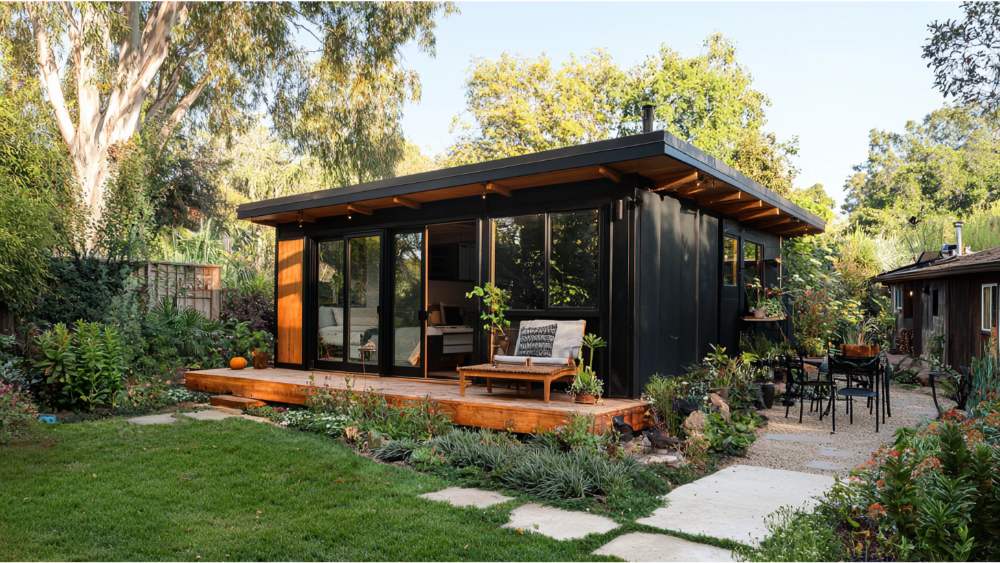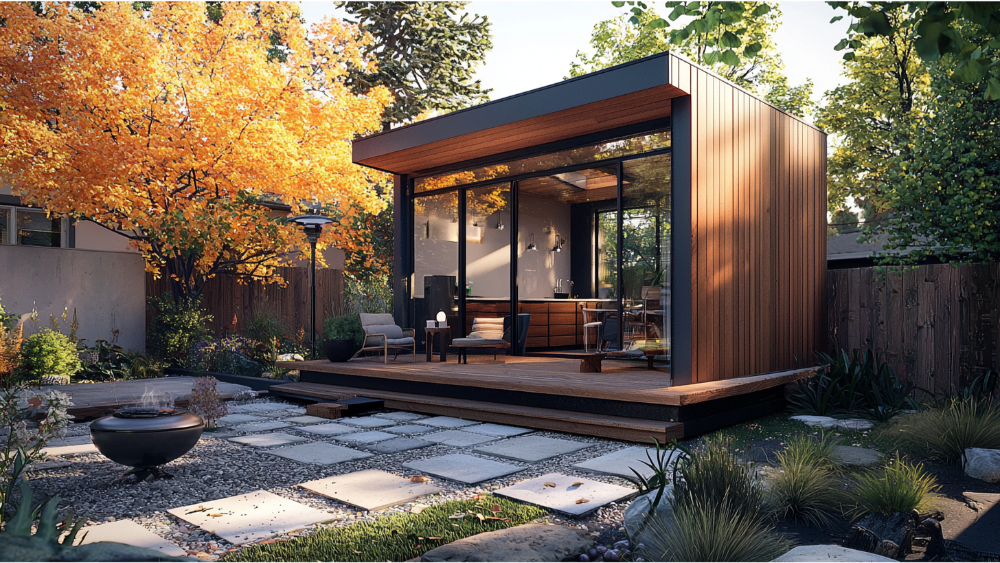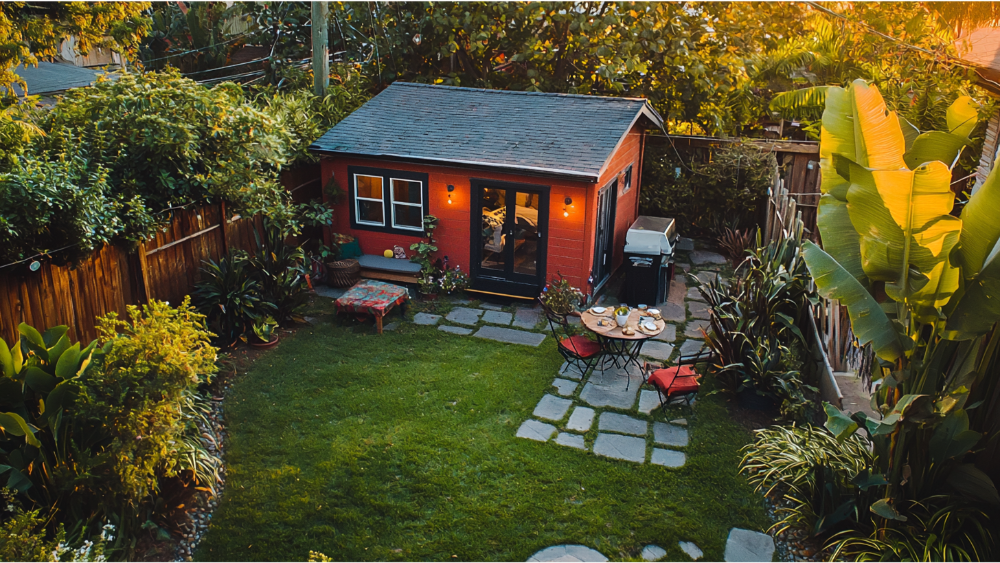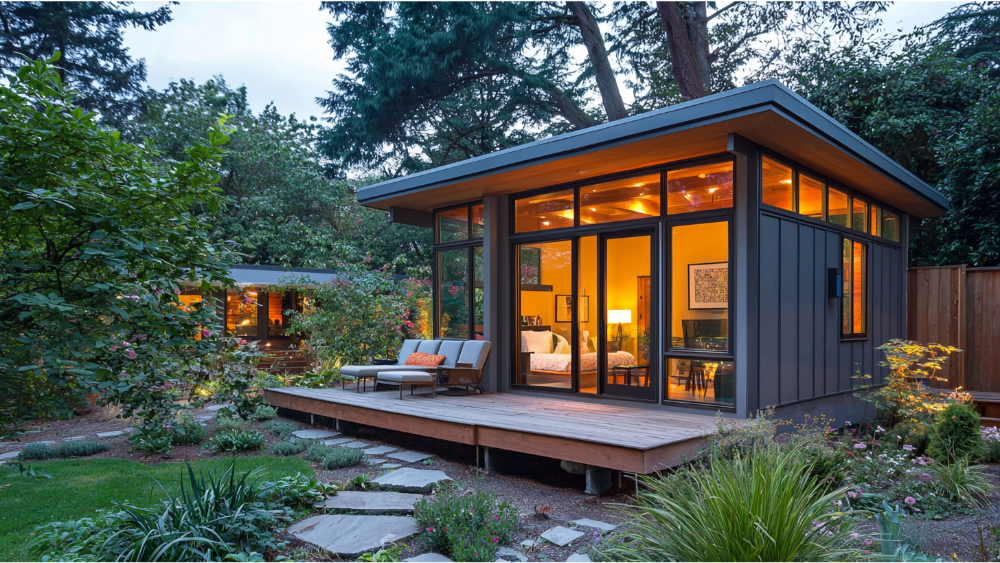
What States Allow ADU? 2025 Updated List
In recent years, Accessory Dwelling Units (ADUs) have become increasingly popular as an alternative housing form and are improving the existing housing stock. These small secondary units are typically located on the same property as a primary residence and can serve as a rental unit, in-law suite, or additional living space for family members. As urban areas continue to face housing shortages and rising costs of living, ADUs offer a more affordable and flexible option for homeowners and renters alike.
While many cities and states enforce limitations on the construction of ADUs, several states encourage their development to address the housing shortage. This article will explore which states allow ADUs and the regulations that oversee their construction.
States that allow ADUs

The following states have legislation in place that allows for the development and construction of ADUs:
- California
- Oregon
- Washington
- Massachusetts
- New Hampshire
- Virginia
- Illinois
- Tennessee
- Florida
- New York
ADU Regulations in Different States
In addition to allowing certain types of ADUs, states also have regulations regarding their construction and use. Some local governments ADU laws include:
Size limitations
Many states have specific requirements for the size of an ADU, such as square footage limitations or height restrictions. These regulations are designed to ensure that ADUs fit within the neighborhood's character and adhere to safety standards.
Zoning Regulations
Zoning laws dictate what types of structures can be built on a certain property or in a particular area. Some states have relaxed local jurisdictions that allow for ADUs to be built on single-family lots, while others may require a special permit or variance.
Owner Occupancy Requirements
Some states require that either the primary residence or the ADU must be owner-occupied, meaning that the homeowner must live in one of the units. This is often in place to prevent investors from buying up properties solely for building and renting out ADUs.
Parking Requirements
Parking requirements vary by state and can include provisions for off-street parking for both the primary residence and the ADU, as these regulations aim to ensure adequate space for residents and visitors. It’s important to check local guidelines to stay compliant.
Rent control laws
In states with strict rent control laws, there may be limits on how much landlords can charge for rent on their accessory dwelling unit.
It's important to research the specific regulations in your state before pursuing the construction of an ADU. Consulting with a local housing authority or professional contractor can also provide valuable insights into the process and any potential roadblocks
Regulations on ADUs in these states

Each state has its own set of regulations and state laws when it comes to ADUs, and they can vary greatly from one another. Here are some key points to note for each of the states listed above:
California
California is considered a leader in promoting ADU development, having passed several bills in recent years to facilitate construction for homeowners. Notably, there are no minimum lot size requirements, and detached ADUs up to 1,200 square feet are permitted on most lots. Additionally, homeowners have the option to convert existing structures, such as garages or basements, into ADUs.
Oregon
In 2017, Oregon passed a state-wide law permitting the development of detached accessory dwelling units (ADUs) on most residential lots. These units can be as large as 800 square feet and must adhere to local regulations and design standards.
Washington
Washington has been promoting Accessory Dwelling Unit (ADU) development as part of its affordable housing strategy, with several cities offering incentives for homeowners to build them. Many cities permit both attached and detached ADUs, although there are some restrictions regarding lot size and the number of bedrooms.
Colorado
In 2015, Colorado enacted a law mandating that all municipalities allow at least one type of Accessory Dwelling Unit (ADU), either attached or detached, on any lot designated for residential use. While there are some limitations regarding the size and location of ADUs, the overall process for building one in Colorado is relatively straightforward.
Massachusetts

Massachusetts has a long history of permitting accessory dwelling units (ADUs), with many cities implementing regulations since the 1980s. Despite this progress, there are still restrictions on their construction; these units must be owner-occupied or occupied by a family member.
Benefits of ADUs
As more states permit the construction of Accessory Dwelling Units (ADUs), it’s evident that they come with a range of advantages. ADUs provide affordable housing solutions in today’s market, making them a viable option for both homeowners and renters in the face of increasing living expenses.
Moreover, ADUs can boost property value and provide income opportunities for homeowners. They support multi-generational living, ADUs for aging parents are becoming a great option by enabling families to live together while preserving privacy and independence. Additionally, with their smaller sizes and potential for energy-efficient features, ADUs offer a more sustainable and eco-friendly housing option. Types of ADUs Permitted in Various States.
Detached ADUs
These units are completely separate structures from the housing units and can range in size from a small backyard cottage to a larger standalone apartment. They offer flexible living options, making them ideal for guests, rentals, or private workspaces.
Attached ADUs
The attached ADUs are connected to the primary residence, such as a converted garage or basement apartment. They provide homeowners with additional living space and can serve as rental units or accommodations for family members.
Junior ADUs
Junior ADUs are smaller units that are typically limited in size and often require the homeowner to occupy either the primary residence or the ADU. They may also have additional restrictions, such as not allowing a full kitchen.
Conversion ADUs
These units involve converting existing space within the primary residence into a separate living unit, such as converting a spare bedroom into an apartment with its own entrance. This not only provides additional living space but can also generate rental income for homeowners.
What States Are Most ADU Friendly?
While many states allow ADUs, some are more welcoming and supportive of their construction than others. California, for example, has been at the forefront of promoting ADUs as a solution to their housing crisis and has implemented several laws to ease the process for homeowners. Similarly, Oregon and Washington have also taken significant steps to encourage ADU development.
On the other hand, some states have strict regulations that can make it challenging to build an ADU or even discourage homeowners from pursuing one. However, with the growing popularity of ADUs and increasing support from advocates and policymakers, more states will likely become more ADU-friendly in the coming years.
Federal Regulations on ADUs
While states have the primary authority over regulating ADUs, some federal regulations may impact their construction. For example, the Fair Housing Act prohibits discrimination against renters based on familial status, which includes families with children living in ADUs.
Additionally, the Federal Housing Administration (FHA) has specific guidelines for financing ADU properties through federally insured loans. These guidelines include requirements for separate utilities and entrances for the ADU unit.
Roles of States in Regulation ADUs

Ultimately, the regulation of ADUs falls on individual states. They have the power to determine what types of units are allowed and what regulations will be in place. However, with such a wide range of regulations and varying levels of support for ADU development, it's essential to research and understand the specific rules in your state before pursuing an ADU project.
As housing needs continue to evolve, more states will likely explore and expand their policies on ADUs. Whether you're a homeowner looking for additional income or a renter seeking affordable housing options, understanding where ADUs are allowed and how they are regulated can provide valuable insights into this growing trend.
The Appeal of ADUs
The popularity of ADUs is not surprising, as they offer many appealing benefits for both homeowners and renters. For homeowners, building an ADU can provide additional income through rental opportunities or increased property value. It also offers flexibility in terms of living arrangements, allowing homeowners to accommodate guests, and family members, or even create a private workspace.
For renters, ADUs offer more affordable housing options compared to traditional rentals or buying a home. They also provide the opportunity to live in desirable neighborhoods that may otherwise be out of their budget.
Cheapest States to Build ADU

If you're considering building an ADU, the expenses can vary greatly based on location and the type of unit. Nonetheless, certain trends indicate which states might offer more cost-effective options for ADU construction. Typically, these states have lower living costs, fewer regulations, or robust support for ADUs.
Some of the top cheapest states to build an ADU include Oklahoma, Indiana, Ohio, South Carolina, and Florida. These states have relatively low costs of living and less stringent regulations on accessory dwelling units.
Additionally, they have seen a surge in ADU development in recent years as more homeowners and renters turn to these units for affordable housing options.
Frequently Asked What States Allow ADU Questions

What is the average cost of building an ADU?
The cost of building an ADU can vary greatly depending on factors such as size, location, and materials used. It's best to consult with a professional contractor for a more accurate estimate.
Can I rent out my ADU on Airbnb or other short-term rental platforms?
This depends on the regulations in your state and local area. Some states have specific laws prohibiting short-term rentals in ADUs, while others may require special permits or have restrictions on the number of days per year that you can rent out your unit.
Do I need separate utilities for an ADU?
In most cases, yes. Separate utilities are typically required for safety and convenience reasons.
Can I build an ADU on my rental property?
This may also depend on state and local regulations. Some areas may require the homeowner to occupy either the primary residence or the ADU, while others may allow for both units to be rented out.
How long does it take to construct an ADU?
The timeline for building an ADU can vary depending on factors such as permits, weather conditions, and the size of the unit. It's best to consult with a professional contractor for a more accurate estimate. Overall, it is important to carefully research your state's regulations and consider all factors before embarking on an ADU project.
Conclusion

As housing demands evolve, Accessory Dwelling Units (ADUs) provide a flexible and cost-effective option for homeowners and renters alike. With as much adu construction as there is, it’s vital to stay informed about changes in regulations and policies at both federal and state levels. As more states seek solutions for housing affordability, we might see increased support for ADUs in the future. Stay tuned for updates and make sure to educate yourself on all aspects of ADU development to ensure a successful and beneficial living arrangement.
ADUs are becoming essential in meeting diverse housing needs and will continue to be significant in our dynamic housing landscape. However, it’s important to understand the specific rules and regulations in your state before starting an ADU project to guarantee a smooth and successful experience. Whether you’re seeking extra income, more space, or a way to host family or guests, considering the advantages of building an ADU on your property is worth it.




